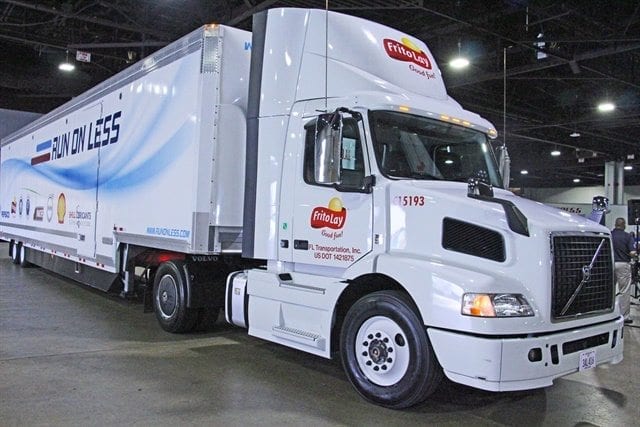Never before in history has so much information been available so readily. You would think with all that information it would be easy to make decisions. But that’s not the reality — especially when it comes to fuel efficiency strategies.
In 2013 the North American Council for Freight Efficiency released a report called Barriers to the Increased Adoption of Fuel Efficiency Technologies in the North American On-Road Freight Sector. The report uncovered the fact that credible information was a big reason fleets are not investing in fuel efficiency technologies.
The key here, of course, is the “credible” part of credible information. Sure there are mountains and mountains of information available. So much so that people often feel overwhelmed by it. Amazingly, more data was created between 2013 and 2015 than in the previous history of the human race. In a 2015 Forbes article, it was predicted that by 2020, 1.7 megabytes of new information will be created every second for every human being on the planet.
In the information age we live in, lack of credible information should not be a barrier to improving fuel efficiency regardless of the power source keeping the wheels turning.
What that means to me is that the problem of finding credible information is going to get worse not better. Today’s fleets are challenged by all the information available to them and in trying to discern which pieces of information are valid.
Large fleets are in the enviable position of being able to test some of the technology options on a few trucks in their fleets to determine real-world fuel savings. Smaller fleets (i.e., less than 20 trucks), which make up 97.3% of the industry according to the American Trucking Associations, can’t afford to do the same type of demonstration projects.
These fleet operators need some one to sift through the data and weed out the marketing hype to get to the nitty gritty of what works and what doesn’t. They need to be able to see what realistic fuel savings are for a given technology in real-world use.
That was part of the impetus behind the recent Run on Less cross-country road show. Seven fleets fielded seven trucks with seven drivers over a three-week period to demonstrate that 9 MPG was possible on a day-to-day basis. They not only proved 9 MPG, but achieved a cumulative average of 10.1 MPG over the course of the Run.
As confusing as things are today for fleets, there are many developments on the horizon that are just going to add to the confusion. Things like autonomous vehicles and electric-powered trucks are not far from becoming a reality.
How will fleets determine if and when those technologies are right for them? The answer is simple; they will continue to need credible, unbiased information. That means vehicle manufacturers, component suppliers, fleets, government entities and NGOs are going to have to do a better job of sharing information about test results that have been vetted and validated and detailing all of the benefits and challenges associated with the devices.
NACFE plans to continue to be that neutral place that will compile that information and present findings without compromising proprietary information. We’re doing it now through our Confidence Reports and we intend to keep on doing it as new technologies are being brought to market.
In the information age we live in, lack of credible information should not be a barrier to improving fuel efficiency regardless of the power source keeping the wheels turning.



